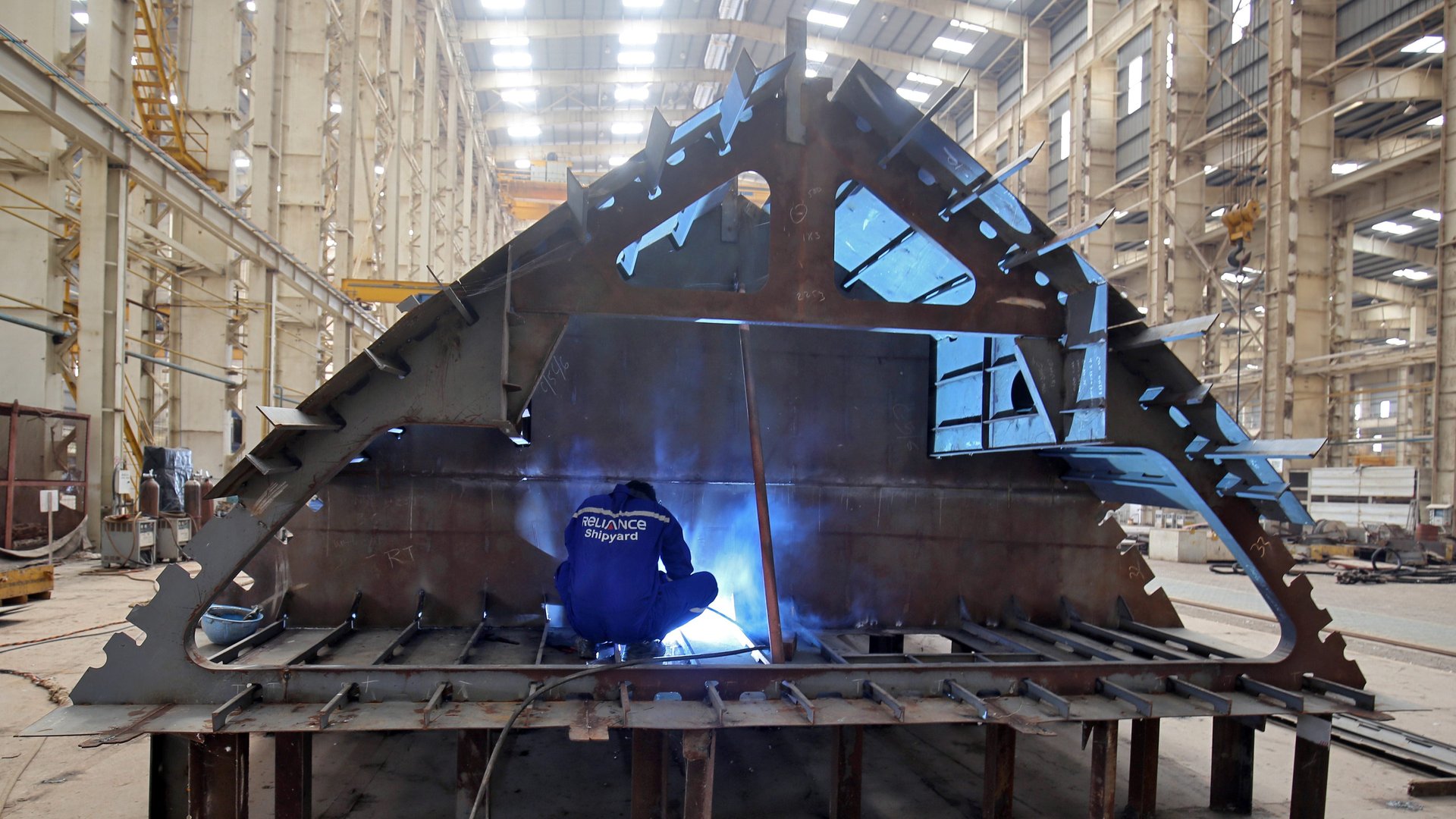After oil, steel prices are making India’s economic recovery harder
Even as concerns over oil prices continue to mount, Indian businesses are now staring at inflationary pressure from another commodity.


Even as concerns over oil prices continue to mount, Indian businesses are now staring at inflationary pressure from another commodity.
The price of steel has gone up by 33% since April 2020 due to a strong surge in demand from the US, Europe, China, and some emerging markets.
The huge stimulus packages by governments across the world along with the unlocking of economic activity and optimism around the vaccination are contributing to the price rise.
“While this upward cycle in steel prices brings relief to the domestic steel companies who were grappling with low demand and stagnant prices, it has spooked the end-user sectors who are worried about the steep increase in their raw material cost,” Mumbai-based CARE Ratings said (pdf) in its report released yesterday (March 30).
The construction and real estate sector, which account for around 60% of India’s steel consumption, would be the worst hit. In fact, the ministry of road transport and highways has already warned that the soaring steel prices are making infrastructure projects unviable.
The auto sector, which is the second-biggest consumer of steel in India, is also reeling under the pressure of steel price rise. Automakers are forced to take a price hike at a time when the demand for four-wheelers and two-wheelers is weak.
This can have an adverse impact on the Indian economy as a whole.
While inflation could further spike, it will hurt people’s spending power and thereby demand recovery. At the same time, it will hurt job creation as the worst-affected sectors such as infrastructure and auto are labour intensive.